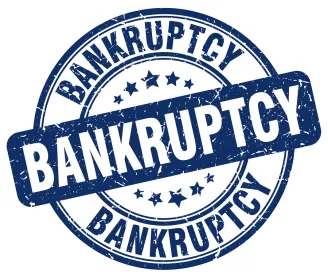In prior posts, we examined whether state-licensed marijuana businesses, and those doing business with marijuana businesses, can seek relief under the Bankruptcy Code. As we noted, the Office of the United States Trustee (the “UST”) has taken the position that a marijuana business cannot seek bankruptcy relief because the business itself violates the Controlled Substances Act 21, U.S.C. §§ 801, et seq. (the “CSA”), notwithstanding their state licenses. The UST has also taken the position that those leasing commercial space to a state-licensed marijuana business are themselves precluded from accessing bankruptcy courts because the CSA makes no distinction between a seller or grower of marijuana and those renting space to the seller or grower. Now, in an opinion issued on December 14, 2018, a bankruptcy court held that businesses selling horticultural supplies to both marijuana businesses and other customers is not eligible for bankruptcy protection.
In the case before the bankruptcy court in the District of Colorado, Way to Grow, Inc. and two affiliated companies were selling indoor hydroponic and gardening-related supplies. The debtors’ expansion plans were tied to the cannabis industry, although the debtors also had customers using the hydroponic products to grow other crops. A secured creditor moved to dismiss the cases, arguing that the debtors should be barred from bankruptcy relief because their business violated the CSA. In considering the secured creditor’s argument, the bankruptcy court began by noting that bankruptcy courts “have consistently dismissed cases where debtors engaged in ongoing CSA violations, or where a debtor’s reorganization efforts depend on funds which can be considered proceeds of CSA violations.” Thus, the question before the court was whether the debtors were engaged in ongoing violations of the CSA.
The court found no evidence that the debtors were directly violating the CSA. The court also found that the debtors were not indirectly violating the CSA by either aiding and abetting a violation of the CSA, or by conspiring to violate the CSA. The court held that the debtors’ business activities, i.e., selling hydroponic equipment, did not evidence a specific intent to assist their customers in violating the CSA. Key to the court’s holding was the fact that the debtors were not selling exclusively to customers in the marijuana industry, but instead were also selling to commercial and individual horticulturists, growing a variety of legal crops. The court also held that there was insufficient evidence of an actual agreement between the debtors and their customers to violate the CSA since the sale of the hydroponic supplies did not specifically contemplate, depend upon, or require any activity that is necessarily illegal.
Unfortunately for the debtors, however, the bankruptcy court held that they were violating Section 843(a)(7) of the CSA which makes it a federal crime to “manufacture” or “distribute” any “equipment, chemical, product or material which may be used to manufacture a controlled substance . . . knowing, intending, or having reasonable cause to believe, that it will be used to manufacture a controlled substance.” The court pointed to substantial evidence that established that the debtors had reasonable cause to believe that the equipment they sold would be used, by at least some of their customers, to manufacture marijuana, finding:
Considering this abundant evidence, Debtors’ efforts to distance themselves from knowledge of their customers’ use of their products is simply not credible. Even though the Court concludes Debtors do not share their customers’ specific intent to violate the CSA, Debtors certainly know they are selling products to customers who will, and do, use those products to manufacture a controlled substance in violation of the CSA. Debtors tailor their business to cater to those needs, tout their expertise in doing so, and market themselves consistent with their knowledge. There is no evidence this business model has materially changed post-petition.
Furthermore, the court held that the debtors could not make any changes to their business in order to cure the ongoing violations of the CSA since eliminating marijuana-related income “would be devastating to the Debtors.” Therefore, the court found that it had no alternative but to dismiss the bankruptcy cases.
What makes this case interesting, or troubling from the standpoint of parties involved in a state legalized marijuana industry, is that the debtors did not grow or distribute marijuana, and did not lease space where the marijuana was produced or processed. Instead, the debtors sold equipment that was used to both grow marijuana as permitted under state law, as well as other crops. This case puts those who derive income from the sale of product used by marijuana businesses at significant risk of being precluded from access to the bankruptcy courts.
The court’s ruling is now under appeal. We are also awaiting the 9th Circuit Court of Appeals’ decision in the Garvin v. Cook Investments case. It will be extremely helpful to get Circuit guidance on the question of whether those involved in a state-legalized marijuana industry can also access relief granted under the federal bankruptcy law. We will continue to keep our readers up to date on all developments in these cases specifically and in marijuana-related bankruptcy cases more generally.




 />i
/>i

